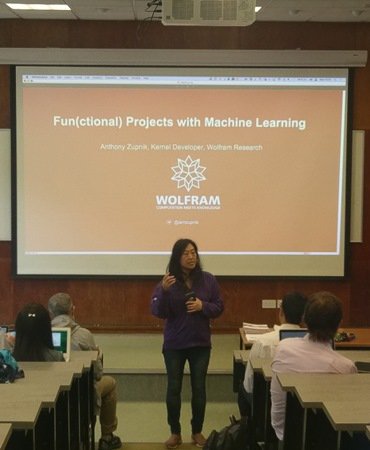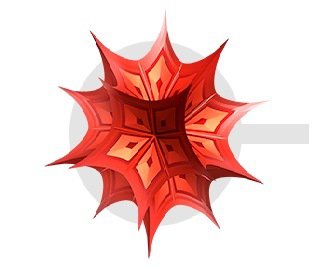The three day workshop had a different focus on each day.
The first day was for people new to Mathematica and the Wolfram language. Mark Braithwaite, a Wolfram Technical Consultant, gave an introduction to the software and explained the key principles and some of the more common functions of the software.

The second day covered more advanced topics. Three of the topics were delivered by developers of the Wolfram language - Anthony Zupnik (Kernel Developer) and Carlo Giacometti (Mathematica Algorithm R&D). The first session demonstrated the strengths of Mathematica in the world of Machine Learning with the second session focusing on a new tool to deploy Mathematica powered web services directly to the cloud – both delivered by Anthony. Alongside these talks, we also had a remotely delivered talk about what various functions a user can use to process audio and image data in the new version of Mathematica – delivered by Carlo.
The final presentation of day 2 focused on the practical use of Mathematica in teaching and research, the last strand of our workshop. Dr Stephen Lynch, a senior lecturer from Manchester Metropolitan University gave an interesting presentation on how Mathematica (and other tools) can bridge the gap between theoretical knowledge and practical application of that knowledge. This will hopefully encourage more students to choose Mathematics as their primary discipline at Undergraduate.
Day three began with a presentation by Prof. Niels R. Walet (School of Physics and Astronomy, University of Manchester), in which the audience could decide which practical examples of Mathematica use in research they wanted to hear about. This was an interesting approach as the interests of the audience influenced the level of detail presented.
The last talk, delivered by Dr. Colin Steele (Director of Service Teaching, School of Mathematics, University of Manchester), focused on the use of Mathematica as a teaching tool. As the language represents mathematical principles in a very mathematical way (fractional numbers stay fractions rather than becoming floating points), it is an easy step for students to obtain immediate results and graphical representations.
The workshop ended with a networking opportunity for the attendees with the aim to encourage knowledge sharing and cooperation between all users of Mathematica. As a result of this networking event we have proposed to create a Mathematica User Group -- so watch this blog for further news!
Finally, our thanks go to all of our presenters for very interesting talks and to Wolfram Research for their support in getting the workshop off the ground.

